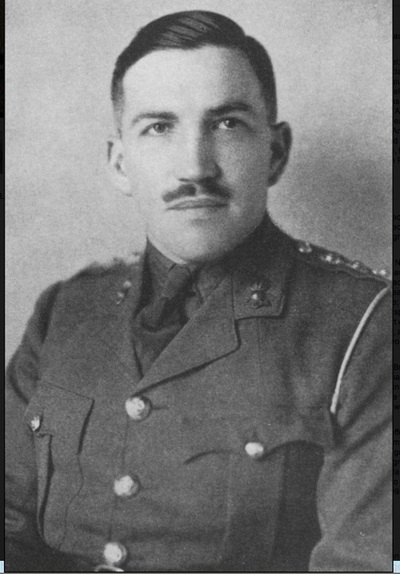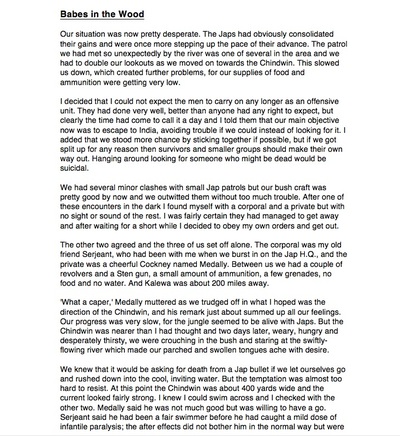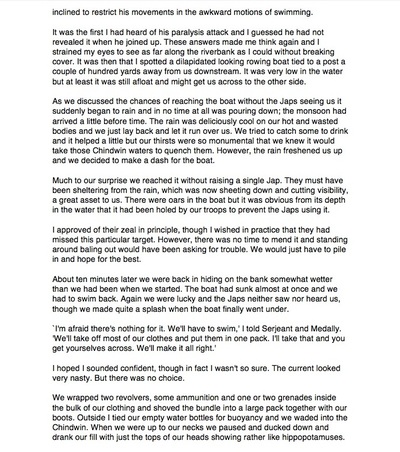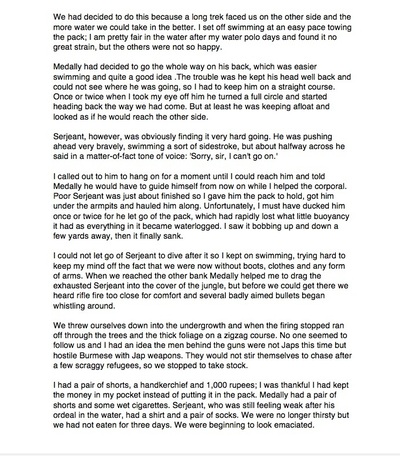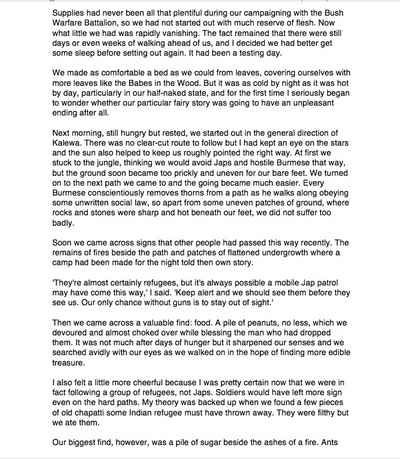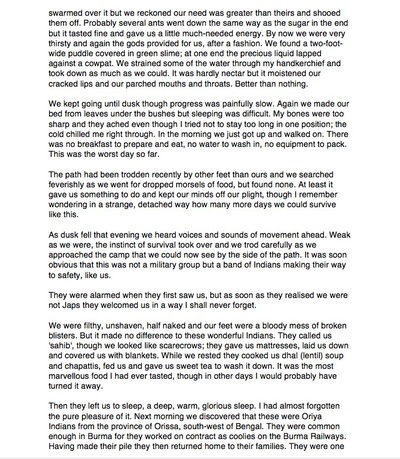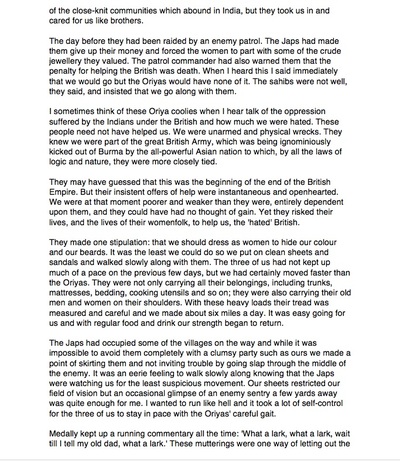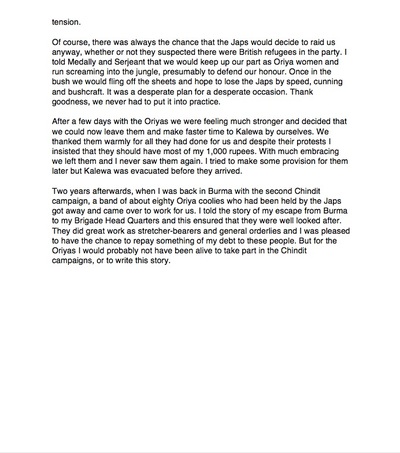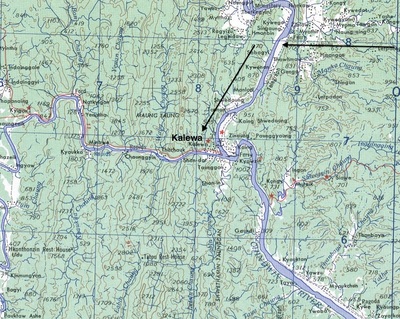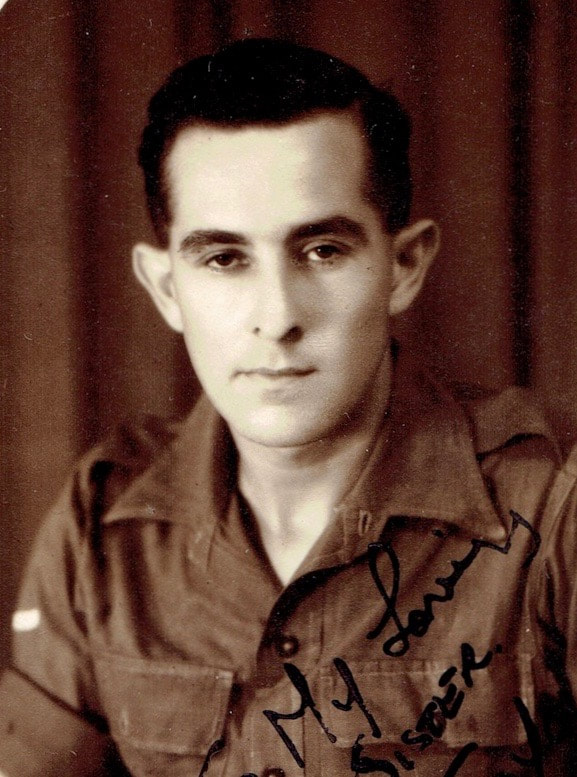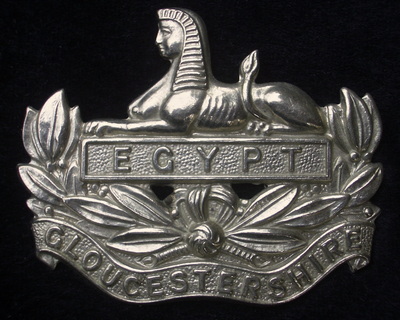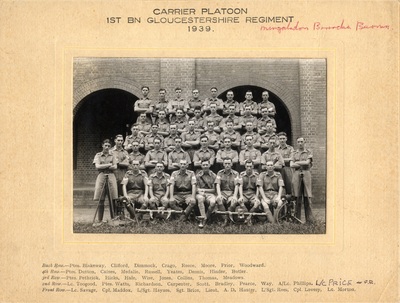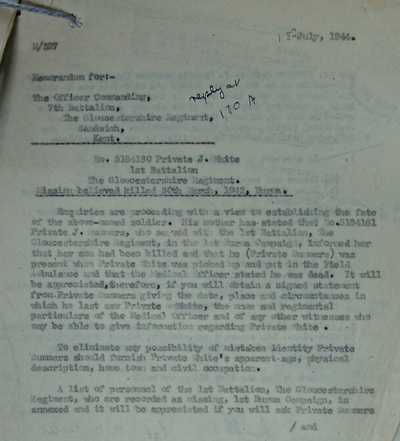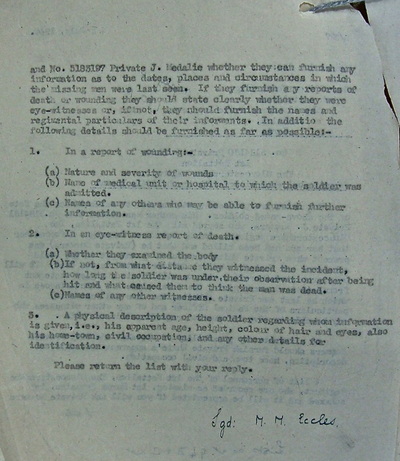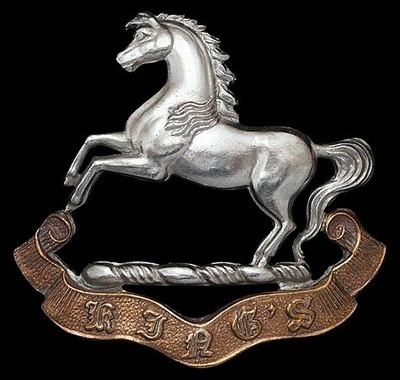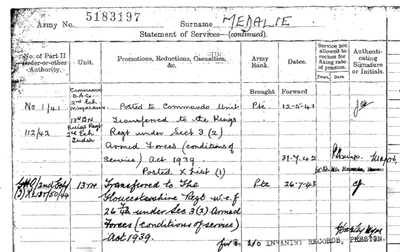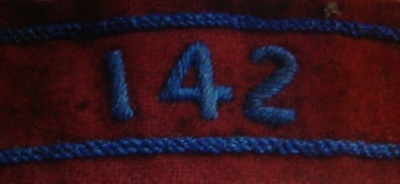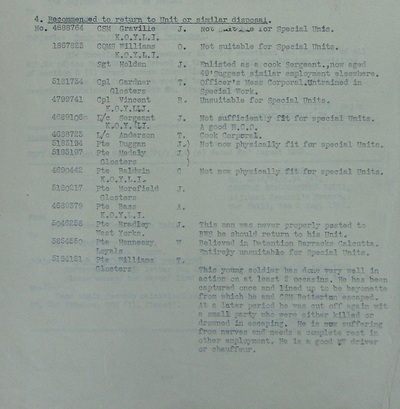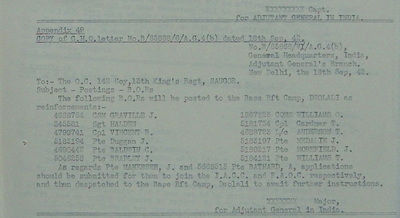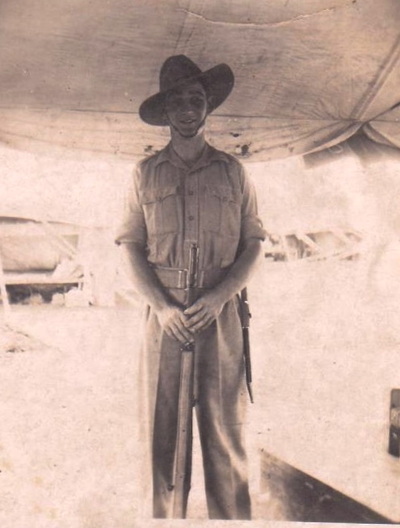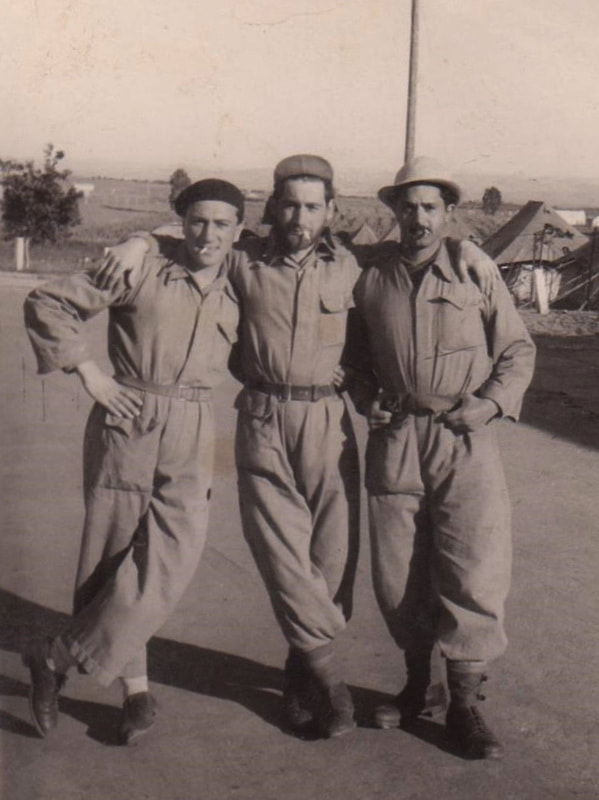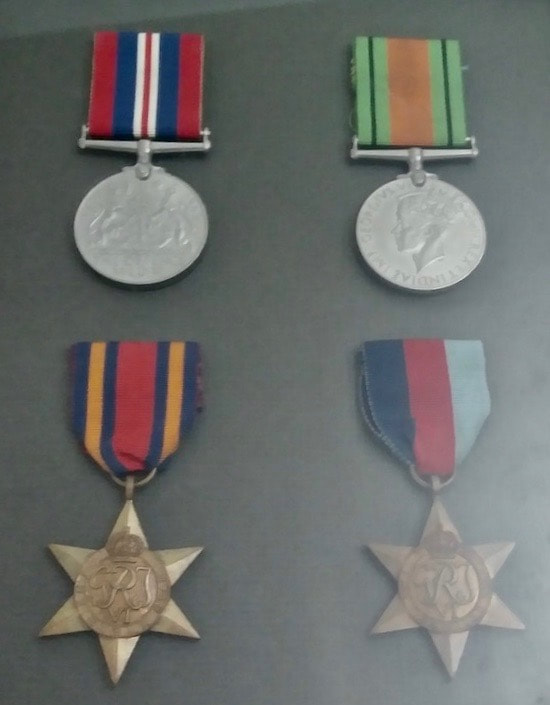Pte. Israel 'Jack' Medalie
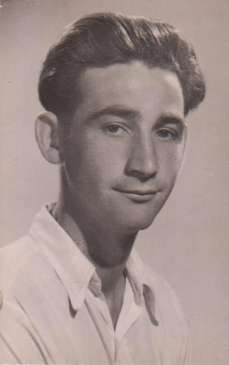 Young Jack Medalie.
Young Jack Medalie.
In September 2013, I was very fortunate to be contacted by the daughter of a soldier, who I had previously only read about in books written by the famous Chindit officer, 'Mad' Mike Calvert.
Danielle, the daughter of Israel Medalie, had recently received her father's Army service records from the M.O.D. offices at Glasgow and was hoping to make sense of the information found in these records. Danielle had picked up on an entry showing her father's posting to a Commando Unit in May 1941 and then a subsequent transfer across to the 13th King's Liverpool in July 1942.
From reading the books 'Fighting Mad' and 'Prisoners of Hope', both describing the exploits of Mike Calvert during the Burma campaign, I knew mention of a soldier that Calvert referred to simply as Medally. This soldier served alongside Major Calvert during the retreat from Burma in 1942, where both men were part of the 'last ditch' attempt to slow up the Japanese advance. To suddenly discover that the same man had 13th King's connections was very exciting to say the least.
Israel was born in Cork, a city in the Republic of Ireland in 1919. Later on he was schooled at the Norwood Jewish Orphanage in London until 1933. He enlisted into the British Army in 1936 and was posted to the Gloucestershire Regiment, by 1938 he was training at the A.F.V. School and learning about the attributes of Armoured Fighting Vehicles.
In all mentions of Pte. Medalie found on official Army documents, his initial is given as 'J', obviously standing for Jack. When I asked Danielle why this was she told me:
I don't know how the name thing happened, but it's recorded in all his Army records as Jack. When they sent him the medals in the 1950's the box was addressed to Mr. J. Medalie, I know this, because I still have the box. However, his real name is Israel. His next-of-kin at the time was listed as his father, and his Dad's name was Jack. Maybe they somehow confused the issue at this point and it was too late to rectify the error. I guess we will never really know and can only make assumptions.
I wonder if Israel decided against using his given birth name on Army documents as a way of disguising his obvious Jewish background. This may well of been encouraged or possibly ordered by the Armed Forces, with a view to protect any service personnel that may fall in to enemy hands and become prisoners of war. One can only imagine the fate of any Jewish soldier captured by the German or even Japanese forces during WW2.
Jack Medalie began his Burma service in January 1939 as part of No. 4 Carrier Platoon, Gloucestershire Regiment, he was at the Mingaladon Cantonment, which was close to one of the most important RAF airfields in southern Burma and located on the outskirts of Rangoon.
Danielle told me that:
According to his records, in 1941 he was posted to the Commando Unit DAC. I understand that he was at the Bush Warfare School in Maymyo and when the British Army retreated from Burma in 1942, he and one other crossed the Chindwin River with Mike Calvert. This escape warranted a mention in Calvert's books, "Fighting Mad" and "Prisoners of Hope".
The funny thing is, my Dad couldn't swim! I wonder if Mike Calvert was his Commanding Officer on a permanent basis, or just for the time that they travelled back to India in mid-1942. Would he be classed as a Chindit at this point? My brothers did say he mentioned he fought with the Ghurkas, which I would assume means he actually served together with them closely enough to mention them as if they were "brothers-in-arms".
I had previously read both books and had often wondered if any of the men who served at the Bush Warfare School with Major Calvert, would have been natural recruits for Wingate and his fledgling Chindit Brigade. This seemed logical to me at the time and now there was some evidence emerging that this was indeed the case.
Answering some of Danielle's questions, I informed her that Calvert had worked with Gurkha soldiers on both the retreat from Burma in early 1942 and again on Operation Longcloth the following year, where he commanded Chindit Column 3 which was in essence a Gurkha unit.
The Bush Warfare School at Maymyo was a centre for clandestine operational training, involving the use of explosives and Commando type tactics. Mike Calvert commanded the school at that time and had been visited by Brigadier Wingate in early 1942, it is possible that Jack Medalie had been introduced to Wingate at one of the training lectures he gave at Maymyo.
The Commandos from the Maymyo School were some of the last men to leave Burma during the retreat. Calvert led a group of men, including Pte. Medalie and a section of Gurkha troops in sabotage raids on the advancing Japanese, at one point attacking an enemy patrol from the decks of an Irrawaddy River paddle steamer. It was a short time after this engagement that Jack Medalie and another soldier ironically named Corporal Sargent, found themselves in a dispersal group of three, with the other member being Major Calvert.
Seen below are the pages from Mike Calvert's book, 'Fighting Mad', telling the story of how he, Jack Medalie and Corporal Sargent escaped from Burma that year. You will notice that Calvert refers to the men using the names, Medally and Serjeant, this is how he remembered them and so I have left the spellings as he put them on the page. Also shown is a photograph of Calvert and a map in relation to their journey. Please click on any image to bring it forward on the page.
One thing to note at this juncture; is how unusual it is in my experience, for a private soldier such as Jack Medalie to be mentioned so prominently in any book written by an officer from the Burma campaign. It is by good fortune that the officer in question was Mike Calvert, a man who understood and recognised good soldiering, regardless of the rank of the man involved. Nevertheless, it is something that Danielle and her family should be very proud of.
Danielle, the daughter of Israel Medalie, had recently received her father's Army service records from the M.O.D. offices at Glasgow and was hoping to make sense of the information found in these records. Danielle had picked up on an entry showing her father's posting to a Commando Unit in May 1941 and then a subsequent transfer across to the 13th King's Liverpool in July 1942.
From reading the books 'Fighting Mad' and 'Prisoners of Hope', both describing the exploits of Mike Calvert during the Burma campaign, I knew mention of a soldier that Calvert referred to simply as Medally. This soldier served alongside Major Calvert during the retreat from Burma in 1942, where both men were part of the 'last ditch' attempt to slow up the Japanese advance. To suddenly discover that the same man had 13th King's connections was very exciting to say the least.
Israel was born in Cork, a city in the Republic of Ireland in 1919. Later on he was schooled at the Norwood Jewish Orphanage in London until 1933. He enlisted into the British Army in 1936 and was posted to the Gloucestershire Regiment, by 1938 he was training at the A.F.V. School and learning about the attributes of Armoured Fighting Vehicles.
In all mentions of Pte. Medalie found on official Army documents, his initial is given as 'J', obviously standing for Jack. When I asked Danielle why this was she told me:
I don't know how the name thing happened, but it's recorded in all his Army records as Jack. When they sent him the medals in the 1950's the box was addressed to Mr. J. Medalie, I know this, because I still have the box. However, his real name is Israel. His next-of-kin at the time was listed as his father, and his Dad's name was Jack. Maybe they somehow confused the issue at this point and it was too late to rectify the error. I guess we will never really know and can only make assumptions.
I wonder if Israel decided against using his given birth name on Army documents as a way of disguising his obvious Jewish background. This may well of been encouraged or possibly ordered by the Armed Forces, with a view to protect any service personnel that may fall in to enemy hands and become prisoners of war. One can only imagine the fate of any Jewish soldier captured by the German or even Japanese forces during WW2.
Jack Medalie began his Burma service in January 1939 as part of No. 4 Carrier Platoon, Gloucestershire Regiment, he was at the Mingaladon Cantonment, which was close to one of the most important RAF airfields in southern Burma and located on the outskirts of Rangoon.
Danielle told me that:
According to his records, in 1941 he was posted to the Commando Unit DAC. I understand that he was at the Bush Warfare School in Maymyo and when the British Army retreated from Burma in 1942, he and one other crossed the Chindwin River with Mike Calvert. This escape warranted a mention in Calvert's books, "Fighting Mad" and "Prisoners of Hope".
The funny thing is, my Dad couldn't swim! I wonder if Mike Calvert was his Commanding Officer on a permanent basis, or just for the time that they travelled back to India in mid-1942. Would he be classed as a Chindit at this point? My brothers did say he mentioned he fought with the Ghurkas, which I would assume means he actually served together with them closely enough to mention them as if they were "brothers-in-arms".
I had previously read both books and had often wondered if any of the men who served at the Bush Warfare School with Major Calvert, would have been natural recruits for Wingate and his fledgling Chindit Brigade. This seemed logical to me at the time and now there was some evidence emerging that this was indeed the case.
Answering some of Danielle's questions, I informed her that Calvert had worked with Gurkha soldiers on both the retreat from Burma in early 1942 and again on Operation Longcloth the following year, where he commanded Chindit Column 3 which was in essence a Gurkha unit.
The Bush Warfare School at Maymyo was a centre for clandestine operational training, involving the use of explosives and Commando type tactics. Mike Calvert commanded the school at that time and had been visited by Brigadier Wingate in early 1942, it is possible that Jack Medalie had been introduced to Wingate at one of the training lectures he gave at Maymyo.
The Commandos from the Maymyo School were some of the last men to leave Burma during the retreat. Calvert led a group of men, including Pte. Medalie and a section of Gurkha troops in sabotage raids on the advancing Japanese, at one point attacking an enemy patrol from the decks of an Irrawaddy River paddle steamer. It was a short time after this engagement that Jack Medalie and another soldier ironically named Corporal Sargent, found themselves in a dispersal group of three, with the other member being Major Calvert.
Seen below are the pages from Mike Calvert's book, 'Fighting Mad', telling the story of how he, Jack Medalie and Corporal Sargent escaped from Burma that year. You will notice that Calvert refers to the men using the names, Medally and Serjeant, this is how he remembered them and so I have left the spellings as he put them on the page. Also shown is a photograph of Calvert and a map in relation to their journey. Please click on any image to bring it forward on the page.
One thing to note at this juncture; is how unusual it is in my experience, for a private soldier such as Jack Medalie to be mentioned so prominently in any book written by an officer from the Burma campaign. It is by good fortune that the officer in question was Mike Calvert, a man who understood and recognised good soldiering, regardless of the rank of the man involved. Nevertheless, it is something that Danielle and her family should be very proud of.
After regaining the safety of Allied lines, all the men who escaped Burma in the early summer of 1942 enjoyed a period of rest and recuperation. It is at this point that Pte. Medalie's Army service becomes somewhat difficult to establish. On the 31st July he was posted to the 13th Battalion of the King's Liverpool Regiment. This move in my view, must have been influenced by Major Mike Calvert in some way, as by this point Calvert had become the officer in charge of the 13th King's Commando section, now based at their new training camp in Patharia.
Before we move ahead with this part of the story, I would like to complete Jack Medalie's involvement with the 1st Battalion of the Gloucestershire Regiment and their time during the retreat from Burma. In mid-1944 many of the survivors from that time were asked by the Army Investigation Bureau to give witness statements about comrades lost during the retreat. Jack took part in this process after he had re-joined the battalion and information he gave was included in one or two reports concerning missing men from 1942.
One of these reports was for a man named Pte. Joseph White who was killed in late March 1942, the investigation bureau had already taken a witness statement from a Pte. Summers and were now looking for Pte. Medalie to assist in corroborating this man's testimony. It seems to me typical of Jack's character and personality to try and help in any way he could in resolving these investigations, probably in the hope that this might help the casualties family in some small way in coming to terms with their loss.
Seen below are some images in relation to Pte. Jack Medalie and his time with the Gloucestershire Regiment in Burma, including the two page witness statement concerning Pte. Joseph White. Please click on any image to bring it forward on the page.
Before we move ahead with this part of the story, I would like to complete Jack Medalie's involvement with the 1st Battalion of the Gloucestershire Regiment and their time during the retreat from Burma. In mid-1944 many of the survivors from that time were asked by the Army Investigation Bureau to give witness statements about comrades lost during the retreat. Jack took part in this process after he had re-joined the battalion and information he gave was included in one or two reports concerning missing men from 1942.
One of these reports was for a man named Pte. Joseph White who was killed in late March 1942, the investigation bureau had already taken a witness statement from a Pte. Summers and were now looking for Pte. Medalie to assist in corroborating this man's testimony. It seems to me typical of Jack's character and personality to try and help in any way he could in resolving these investigations, probably in the hope that this might help the casualties family in some small way in coming to terms with their loss.
Seen below are some images in relation to Pte. Jack Medalie and his time with the Gloucestershire Regiment in Burma, including the two page witness statement concerning Pte. Joseph White. Please click on any image to bring it forward on the page.
As mentioned previously, Jack Medalie became part of the 13th King's in late July 1942 and was taken on strength of 142 Commando, joining them at the Chindit training centre at Saugor in the Central Provinces of India. The men who made up 142 Commando had been taken from amongst the Special Forces units present in the region, including the 204 Chinese Mission and most notably soldiers from the Bush Warfare School at Maymyo. Once again the Calvert factor comes to the fore and it seems more than coincidental that Jack should be transferred not only to the 13th King's, but straight to the commando section run by Major Calvert.
142 Commando had been raised in June 1942 at Jubbulpore and was originally commanded by Lieutenant-Colonel Fetherstonehaugh of the King's Royal Rifles. The unit contained men who had previously served in the European and the Middle East theatres, these were supplemented by the drafts from the Bush Warfare School and 204 Mission. Major Calvert took over the commandos in July 1942 and training began at the Ramna Camp in Patharia.
The Commando Platoons were made up of experienced fighting men, trained to high degree in the clandestine methods of warfare and the use of explosives. Pte. Medalie's previous experience during the retreat from Burma and his activities alongside Mike Calvert at that time would have made him a valuable addition to this group of soldiers.
However, things did not go to plan in this regard. According to the war diary of the 142 Commando on the 18th September 1942, Pte. Medalie was sent back along with eleven other men, to the reinforcement centre at Deolali and held back as reinforcements for Operation Longcloth. In another entry from the war diary, Jack is listed as 'not now physically fit for special units'. It would seem that the exertions of his escape from Burma earlier in the year had caught up with him and he was not considered ready to resume training. Perhaps he was sent down to Deolali for some more rest and to build up his strength with the hope of re-joining Chindit training later on.
Seen below are some images in relation to Jack Medalie and his time with 142 Commando and the 13th King's, including the two diary entries explaining his health status and his posting to Deolali Reinforcement Camp. The eagle-eyed amongst you might also notice the inclusion of a certain Lance Corporal Seargent of the King's Own Yorkshire Light Infantry on the 'unfit' listing. This was almost certainly the other man mentioned as being present with Jack in Calvert's book 'Fighting Mad'.
Please click on any image to bring it forward on the page.
142 Commando had been raised in June 1942 at Jubbulpore and was originally commanded by Lieutenant-Colonel Fetherstonehaugh of the King's Royal Rifles. The unit contained men who had previously served in the European and the Middle East theatres, these were supplemented by the drafts from the Bush Warfare School and 204 Mission. Major Calvert took over the commandos in July 1942 and training began at the Ramna Camp in Patharia.
The Commando Platoons were made up of experienced fighting men, trained to high degree in the clandestine methods of warfare and the use of explosives. Pte. Medalie's previous experience during the retreat from Burma and his activities alongside Mike Calvert at that time would have made him a valuable addition to this group of soldiers.
However, things did not go to plan in this regard. According to the war diary of the 142 Commando on the 18th September 1942, Pte. Medalie was sent back along with eleven other men, to the reinforcement centre at Deolali and held back as reinforcements for Operation Longcloth. In another entry from the war diary, Jack is listed as 'not now physically fit for special units'. It would seem that the exertions of his escape from Burma earlier in the year had caught up with him and he was not considered ready to resume training. Perhaps he was sent down to Deolali for some more rest and to build up his strength with the hope of re-joining Chindit training later on.
Seen below are some images in relation to Jack Medalie and his time with 142 Commando and the 13th King's, including the two diary entries explaining his health status and his posting to Deolali Reinforcement Camp. The eagle-eyed amongst you might also notice the inclusion of a certain Lance Corporal Seargent of the King's Own Yorkshire Light Infantry on the 'unfit' listing. This was almost certainly the other man mentioned as being present with Jack in Calvert's book 'Fighting Mad'.
Please click on any image to bring it forward on the page.
I had sent the war diaries for the 13th King's to Danielle, but these documents had not given any clues as to her father's participation on Operation Longcloth, or which Chindit column he had belonged to. I had always felt that Major Calvert would have wanted Jack and any of the men he had previously served alongside during the retreat, to be part of his own Chindit Column 3. Unfortunately, there was no evidence on paper to support this theory.
Danielle told me that her father had always considered Brigadier Wingate to be the 'boss in Burma'. It is still my view that Jack Medalie served with the Chindits in 1943. Many men fell out of training, or were discarded as 'unfit' for purpose during the latter months of 1942. However, many men were also being posted to and fro during those months and often returned to the Chindit training camp at Saugor. Pte. Medalie's experience and soldiering skills would have been too valuable to have been discarded if there was any chance of him being able to make the trip into Burma that year.
On Jack's service records (seen in the gallery above) his period with the 13th King's is stated as from the last day of July 1942, to the 26th July 1943. These are absolutely classic dates for men who served on Operation Longcloth. I believe that he was checked over by the Medical Officer at the Saugor Camp in August/September 1942 and found to still be recovering from his exertions earlier that year. He was then sent to Deolali to rest and if possible return to Saugor and continue his assimilation into the 77th Indian Infantry Brigade at a later date.
In the 142 Commando war diary, soldiers were leaving and re-joining the strength of that unit continuously throughout the final months of 1942 and even as late as January 1943, just one month before the Chindit Brigade moved off to the Assam Borders. So it is more than possible that Pte. Medalie returned to Chindit ranks, took up a place in one of the columns and entered Burma in mid-February 1943.
I understand that there being no documentary evidence for Jack's involvement on Operation Longcloth is a frustration for Danielle and her family, but if I have learned one thing during my research, it is that the study of Chindit 1 is never an exact science and rarely follows any logical pathway.
After July 1943, Jack returned to his original regiment and re-joined the 1st Gloucester's. In March 1944 he was repatriated to the United Kingdom and later joined the 2/7th Warwickshire Regiment with whom he remained until his discharge on the 12th January 1946.
In one of her emails Danielle told me of her father's time after the war:
My father went to fight in the Israeli War of Independence in 1948 as a member of Machal (overseas volunteers), and then the regular Israeli Army. He met and married my mother, Rachel on a Moshav (an agricultural cooperative settlement) in Northern Israel. In 1953, they went to live in South Africa, where my mother had grown up. I am their oldest child and have two younger brothers. My father told my brothers a little about his time in Burma, but not very much.
Effectively, everything we know about him and his time in WW2 is from research I have done, starting with the fact that he was mentioned in a book and that he was a Chindit. Unfortunately, the only things we know for certain are the postings shown in his service records and what Mike Calvert wrote in his books, the rest is supposition. Hopefully some more facts will come to light, even at this late stage.
My father never had an easy life, but he was a devoted husband and father, although a strict disciplinarian. His family was the centre of his life, and he worked very hard to try to give us children a decent start in life. He certainly succeeded in this aspiration. I often wonder how the war might have affected him and if he was ever able to speak to anyone about any of it. Unfortunately he died in October 1980 aged just 61 and long before I felt the need to find out about this large part of his former life that we knew nothing about. Not much of what I have learned is specifically about him, more the situation in general and assumptions made as a result. I will keep on searching and hopefully find out more specific information about this wonderful man.
Seen below is a pdf file describing the participation of the Machal in the Israeli War of Independence in 1948. Please click on the file to download it.
Danielle told me that her father had always considered Brigadier Wingate to be the 'boss in Burma'. It is still my view that Jack Medalie served with the Chindits in 1943. Many men fell out of training, or were discarded as 'unfit' for purpose during the latter months of 1942. However, many men were also being posted to and fro during those months and often returned to the Chindit training camp at Saugor. Pte. Medalie's experience and soldiering skills would have been too valuable to have been discarded if there was any chance of him being able to make the trip into Burma that year.
On Jack's service records (seen in the gallery above) his period with the 13th King's is stated as from the last day of July 1942, to the 26th July 1943. These are absolutely classic dates for men who served on Operation Longcloth. I believe that he was checked over by the Medical Officer at the Saugor Camp in August/September 1942 and found to still be recovering from his exertions earlier that year. He was then sent to Deolali to rest and if possible return to Saugor and continue his assimilation into the 77th Indian Infantry Brigade at a later date.
In the 142 Commando war diary, soldiers were leaving and re-joining the strength of that unit continuously throughout the final months of 1942 and even as late as January 1943, just one month before the Chindit Brigade moved off to the Assam Borders. So it is more than possible that Pte. Medalie returned to Chindit ranks, took up a place in one of the columns and entered Burma in mid-February 1943.
I understand that there being no documentary evidence for Jack's involvement on Operation Longcloth is a frustration for Danielle and her family, but if I have learned one thing during my research, it is that the study of Chindit 1 is never an exact science and rarely follows any logical pathway.
After July 1943, Jack returned to his original regiment and re-joined the 1st Gloucester's. In March 1944 he was repatriated to the United Kingdom and later joined the 2/7th Warwickshire Regiment with whom he remained until his discharge on the 12th January 1946.
In one of her emails Danielle told me of her father's time after the war:
My father went to fight in the Israeli War of Independence in 1948 as a member of Machal (overseas volunteers), and then the regular Israeli Army. He met and married my mother, Rachel on a Moshav (an agricultural cooperative settlement) in Northern Israel. In 1953, they went to live in South Africa, where my mother had grown up. I am their oldest child and have two younger brothers. My father told my brothers a little about his time in Burma, but not very much.
Effectively, everything we know about him and his time in WW2 is from research I have done, starting with the fact that he was mentioned in a book and that he was a Chindit. Unfortunately, the only things we know for certain are the postings shown in his service records and what Mike Calvert wrote in his books, the rest is supposition. Hopefully some more facts will come to light, even at this late stage.
My father never had an easy life, but he was a devoted husband and father, although a strict disciplinarian. His family was the centre of his life, and he worked very hard to try to give us children a decent start in life. He certainly succeeded in this aspiration. I often wonder how the war might have affected him and if he was ever able to speak to anyone about any of it. Unfortunately he died in October 1980 aged just 61 and long before I felt the need to find out about this large part of his former life that we knew nothing about. Not much of what I have learned is specifically about him, more the situation in general and assumptions made as a result. I will keep on searching and hopefully find out more specific information about this wonderful man.
Seen below is a pdf file describing the participation of the Machal in the Israeli War of Independence in 1948. Please click on the file to download it.
| machal.pdf | |
| File Size: | 2617 kb |
| File Type: | |
Pte. Jack Medalie was a tough and courageous man who contributed greatly to the war effort. We cannot say for definite that he took part in Operation Longcloth, but he was certainly selected for 142 Commando in July 1942 and it would only have been his exertions earlier in the year that prevented him from joining the Chindits as they crossed the Chindwin River in February 1943.
Danielle and her family should be extremely proud of his contribution, and not just in relation to his Army service during the years of WW2, but also his part in the foundation of the Israeli State. Please click on either image below to bring it forward on the page.
Danielle and her family should be extremely proud of his contribution, and not just in relation to his Army service during the years of WW2, but also his part in the foundation of the Israeli State. Please click on either image below to bring it forward on the page.
Copyright © Steve Fogden December 2014.
